Lesson Three | SDG #9: Industry, Innovation, & Infrastructure
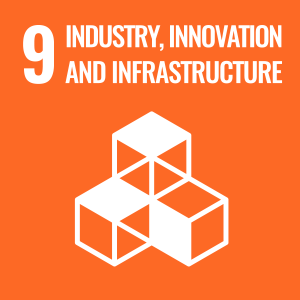 In this lesson, students explore United Nations Sustainable Development Goal #9: Industries, Innovation, and Infrastructure. Students will examine readings, videos, and other online resources to learn about the use of new technologies and infrastructure projects to support sustainability.
In this lesson, students explore United Nations Sustainable Development Goal #9: Industries, Innovation, and Infrastructure. Students will examine readings, videos, and other online resources to learn about the use of new technologies and infrastructure projects to support sustainability.
As part of these activities, students will analyze different green technologies, discuss the innovative strategies used by some communities to create sustainability and evaluate local, national, and global policies that support scientific research and innovation. In addition, students will work as a group to develop a detailed plan for the design and implementation of innovative and sustainable community development projects. This activity will allow students to apply what they have learned about SDG #9, be innovative, and use problem-solving and critical thinking skills.
Lesson Plans for Heritage Language Speakers
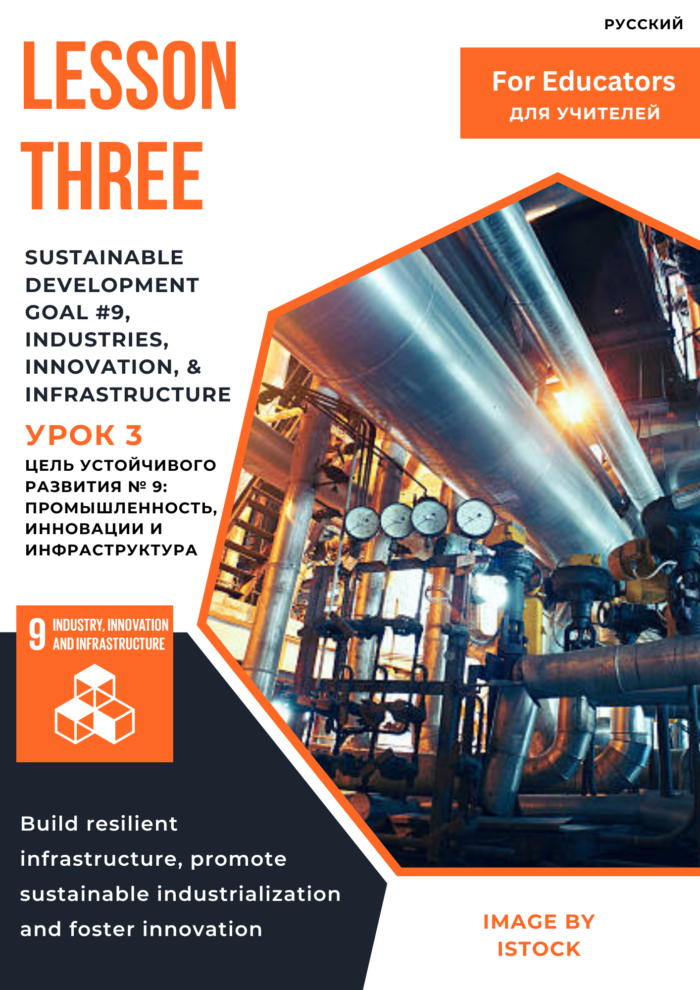
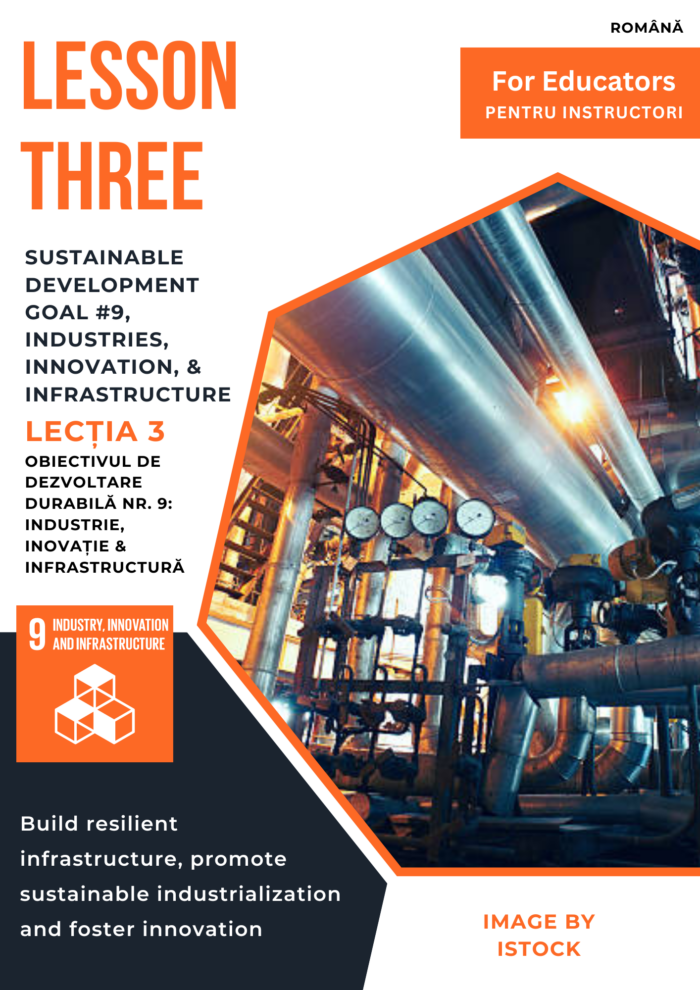
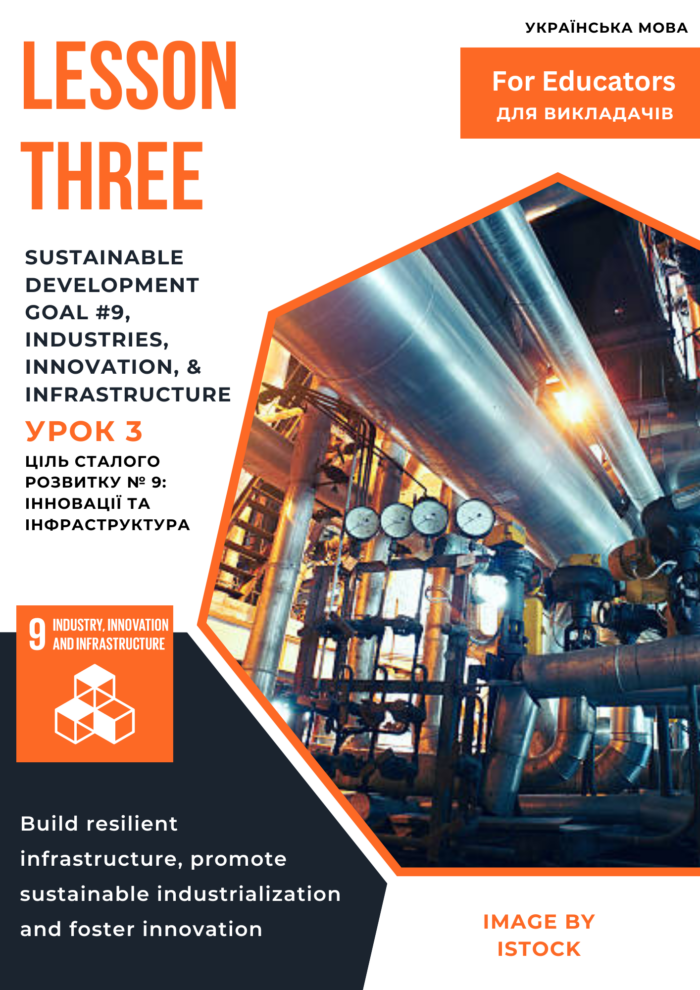
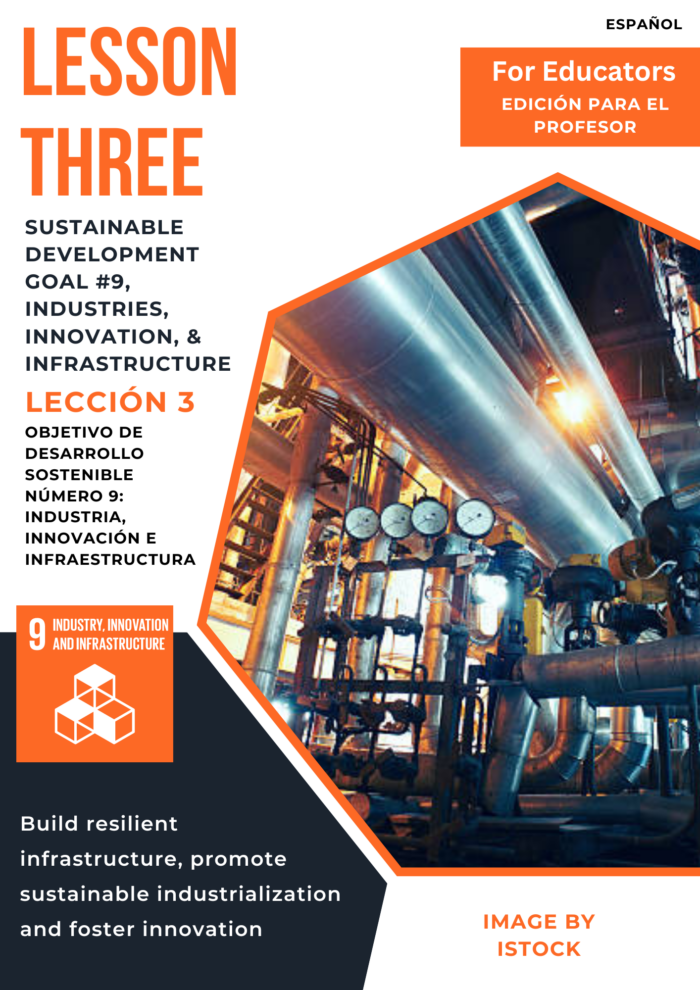
For full access to the translated Lessons and Supplemental Documentation, head to the
OER Commons Hub
Attribution and License
Attribution
This Open Educational Resource, Cultivating Global Competence through the United Nations Sustainable Development Goals, was developed by Ryan Hauck, Michele Anciaux-Aoki, Julianna Patterson, Gloria Kuzmenko-Latmier, Ina Chong, and Global Classroom, World Affairs Council – Seattle.
Cover image by Julianna Patterson from Canva.
Sustainable Development Goals images copyright United Nations. All rights reserved. Used pursuant to fair use.
Translations by:
Larisa Shuvalova
Iryna Novachuk
Inna Shynshyn
Nathan Marks
Brandon Severance
Otilia Baraboi
Ileana Marin
Alexey Kuznetsov
Pedro Lopez-Chaves
License
Except where otherwise noted, Cultivating Global Competence through the United Nations Sustainable Development Goals, copyright World Affairs Council – Seattle, is available under a Creative Commons Attribution-NonCommercial License. All logos and trademarks are property of their respective owners. Sections used under fair use doctrine (17 U.S.C. § 107) are marked.
This resource may contain links to websites operated by third parties. These links are provided for your convenience only and do not constitute or imply any endorsement or monitoring by the World Affairs Council. Please confirm the license status of any third-party resources and understand their terms of use before reusing them.